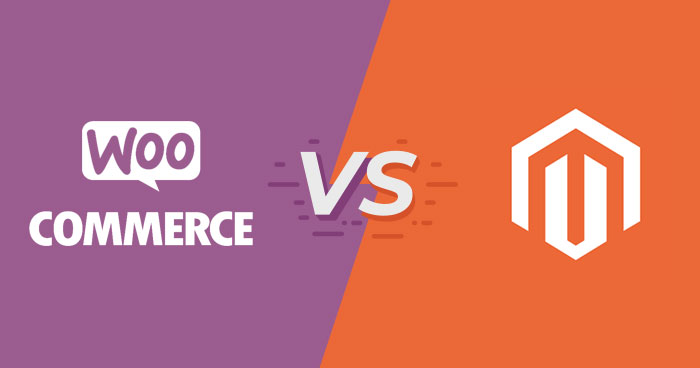Have you been in any doubt when it comes to choosing the ideal e-commerce platform for your underdeveloped or current online store? The overall market provides a lot of options; however, the two main giants that stand out: WooCommerce and Magento. And if you’re looking for an experienced team then get our IT staff augmentation services for your business.
So, today, in this guest post, we will be learning about WooCommerce Vs Magento, getting deep into a proper comparison of these both platforms to assist you in making an informed decision for your business. Then, you can decide whether to hire Magneto developer or WooCommerce.
What Is WooCommerce?
WooCommerce is an open-source e-commerce plugin for the WordPress websites, which provides users to have online stores with smoothness. It delivers important features like product management, delivering safe and secure payments, and custom design templates.
What is Magento?
Magento is a powerful e-commerce platform which is known for its ease-of-use and overall flexibility. And it comes in two editions: Magento Open Source and Magento Commerce. It delivers advanced features like catalog management, multi-store support, and enhanced security support, which makes it an ideal choice for medium to large-scale enterprises.
Pricing: Now, when it comes to choosing between WooCommerce vs Magento, cost acts as an important role. WooCommerce, a WordPress plugin, provides a more cost-efficient solution with its untied base version. On the other hand, Magento is well known for its overall reliability and scalability. However, it comes with high primary setup costs and overall ongoing expenses. Also, depending on your overall budget and the long-tenure goals, selecting between them needs cautions thought.
Ease of Use: For entrepreneurs who are willing to use a user-friendly interface, WooCommerce thrives with its easy integration with WordPress. Its overall enhanced design makes it accessible to the various non-technical users. Also, Magento delivers enhanced customization options that can create a strong learning curve for beginners.
Flexibility and Scalability: Scalability is important for businesses with an ambition to grow plans. Magento uplift extensive customized ability and enhanced scalability options, which make it an ideal for large enterprises. WooCommerce, is more lightweight, it needs additional plugins for enhanced modern functionalities as overall business grows and thrives.
Design and Themes: Both WooCommerce and Magento provide a plethora of themes and overall design flexibility. WooCommerce gets perks from various WordPress theme library. Which allow for easy modification to meet your brand need. Magento, on the other hand, cater more sophisticated design choice ideal for tough e-commerce needs.
| Feature | WooCommerce | Magento |
| Pricing | Free base version; additional costs for plugins | Open-source Community Edition; Enterprise Edition |
| Ease of Use | User-friendly interface; integrates with WordPress | Steeper learning curve; extensive customization |
| Flexibility & Scalability | Lightweight; may require additional plugins | Highly customizable; robust scalability options |
| Design & Themes | Vast WordPress theme library; easy customization | Sophisticated design options; complex requirements |
| Features & Functionality | Essential features; additional plugins required | Advanced functionalities; SEO tools, inventory management |
| Performance & Speed | May require optimization efforts; satisfactory performance | Robust performance optimization; seamless user experience |
| Support & Community | Strong user community; extensive documentation | Active community; dedicated customer support |
| Security | Built-in security features; regular updates | Robust security protocols; regular updates |
Features and Functionality: The contrast of features between WooCommerce and Magento is important for checking which platform goes best better with your needed business requirements. While WooCommerce delivers important features totally out of the box. In addition, Magento excels in delivering advanced functionalities like SEO tools, inventory management, and overall marketing features.
Performance and Speed: In the swift world of online shopping, website presentation and speed are important. Magento is known for its enhanced performance with optimized capabilities. Make sure to deliver a smooth user experience even with heavy loads. WooCommerce might need additional enhancement efforts but can still provide adequate performance with real setup and support. However, for more clarify is crucial that you hire WooCommerce developer who can assist you during the entire process.
Support and Community: Getting relatable support and an agile community can be crucial when meeting with problems for getting advice. Both WooCommerce and Magento possess intensified user communities and large documentation. Magento farther provides regular customer support, which makes it an apt option for businesses willing to get comprehensive help.
WooCommerce Pros:
Seamless Integration: Effortlessly integrates with the WordPress websites, delivering the same environment for the users.
WooCommerce Cons:
Scalability Limitations: It may need additional plugins or optimization for grasping enhanced catalogs or enhanced traffic volumes.
Magento Pros:
Scalability: Built to handle large catalogs, high traffic volumes, and complex e-commerce requirements, making it suitable for enterprise-level businesses.
Magento Cons:
Complexity: Sheer learning as compared to simple platforms, which need technical knowledge for overall setup and customization.
Conclusion:
In the overall battle of WooCommerce vs Magento, there’s no ideal pick which can tick mark all the criteria. Your pick will be depending on your unique business needs, overall budget, and growth requirements. So, whether you go for WooCommerce‘s simplicity or Magento‘s scalability.
Having an IT Staff Augmentation Services to hire Magento developers or hire WooCommerce developers can enhance the process and make sure that your online store is a big success. Check your priorities, explore the features, and start on your e-commerce journey with ease.


